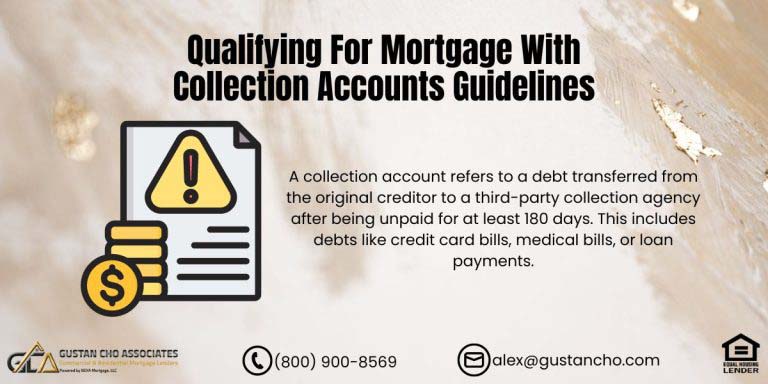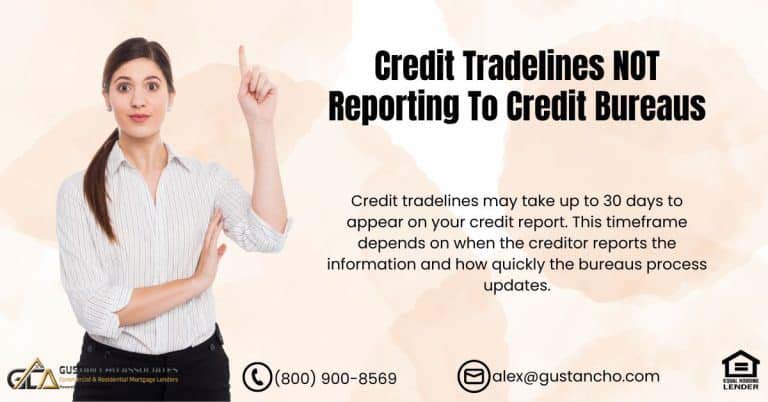How Underwriters View Liabilities in Mortgage Qualification (Updated for 2024)
When applying for a mortgage, understanding how underwriters evaluate liabilities in mortgage qualification is essential. Your income and liabilities play a significant role in deciding if you qualify for a loan. Understanding this is essential for your financial planning. Even with a high income, excessive liabilities could make it difficult to qualify without assistance from a trusted lender like Gustan Cho Associates.
In this updated guide for 2024, we’ll cover how liabilities impact your mortgage application and provide tips to help you prepare. Whether you’re dealing with student loans, car payments, or other financial obligations, this article will give you the knowledge to navigate the process confidently.
What Are Liabilities in Mortgage Qualification?
Liabilities in mortgage qualification are basically the money you owe to others that you have to pay back. This includes things like:
- Credit card bills
- Car payments
- Student loans
- Payments for child support or alimony
- Any other regular monthly debts
When applying for a mortgage, lenders look closely at these liabilities because they help figure out your debt-to-income (DTI) ratio. This ratio is important when deciding if you can get approved for a loan.
Start Your Process Towards Buying A Home
Apply Online And Get recommendations From Loan Experts
What Is a Debt-to-Income Ratio (DTI)?
The debt-to-income ratio is an important number to understand when you’re thinking about taking on a mortgage. It compares how much money you owe each month to how much you make before taxes are taken out. Lenders evaluate this ratio to see if you can manage your monthly mortgage payments and other financial responsibilities.
If your debts are too high compared to your income, it could raise a red flag for them.
Knowing your liabilities in mortgage qualification is essential for making a good impression on lenders. They aim to guarantee you can manage your mortgage payments comfortably without putting too much strain on your finances. A lower debt-to-income ratio means you’re a better candidate for a loan, as it shows that you have enough incoming money to handle your monthly costs. So, it’s a good idea to keep an eye on your debts and earnings before applying for a mortgage!
How Is DTI Calculated?
Here’s a simple breakdown:
To determine your debt-to-income (DTI) ratio, start by summing all your monthly debts, including your new mortgage payment, and then divide that sum by your monthly income. This straightforward formula helps you understand your financial situation better.
For example, if you have a total of $2,000 in monthly payments and earn $6,000 monthly, your DTI would be 33%. Different loan programs have different rules about DTI, so it’s important to know what those are as you think about your options. Remember, understanding your liabilities in mortgage qualification can help you make better financial choices. If you have questions, Gustan Cho Associates is here to help you find the right fit for your situation.
Types of Liabilities Underwriters Consider
Let’s break down the most common liabilities that impact your DTI ratio:
1. Student Loans
Student loans are often one of the biggest liabilities homebuyers face. In 2024, here’s how they’re treated under various loan programs:
- FHA and USDA Loans: Lenders use either the payment amount on your credit report or 0.50% of the loan balance if no payment is listed. Borrowers can request a written statement from their loan provider for an extended payment plan, which often lowers monthly payment amounts.
- Conventional Loans: These allow income-based repayment (IBR) amounts to be used if the payment is documented on your credit report.
- VA Loans: VA guidelines offer an important exemption for deferred student loans. If your loans have been deferred for 12 months or longer, they won’t be counted against you. Additionally, it’s worth noting that Income-Based Repayment (IBR) payments are not considered in this situation. Understanding the specifics can help you to make well-informed decisions about your financial options.
Pro Tip: If your student loans are high, consider consolidating or switching to an extended repayment plan to lower your DTI.
2. Car Payments
When you’re looking to buy a home, it’s important to consider your car payments. For instance, a car payment of $400 each month can really affect how much house you can afford. That car payment is like losing $80,000 in your home-buying budget. So, if you’re planning to get a mortgage, it might be best to hold off on buying a new car for now. Remember, these car expenses are part of your liabilities in mortgage qualification, they can make a big difference in what kind of home loan you qualify for.
3. Revolving Debt
Credit card balances are considered revolving debt. Lenders include the minimum monthly payment shown on your credit report in your DTI calculations. Paying down these balances before applying for a mortgage can improve your chances of approval.
4. Child Support and Alimony
When you’re applying for a mortgage, one important thing to remember is your liabilities in mortgage qualification. This means any money you must pay regularly, like child support or alimony, counts against you. If you’re responsible for these payments, be prepared with proof, like documents, to show your lender. Having this information ready can help make the process smoother.
5. Contingent Liabilities
Contingent liabilities happen when you agree to help someone else with their loan by co-signing. Even though this debt affects your debt-to-income ratio (DTI), you might be able to ignore it if:
- The main borrower has paid their loan on time for at least a year.
- You can show proof of these payments, like canceled checks or bank statements.
Special Situations: Deferred and Installment Debts
Deferred Student Loans
While deferred student loans used to be excluded from DTI calculations, many loan programs now include them. Lenders use 0.50% of the balance for FHA and USDA loans unless a written payment plan is provided.
Installment Loans
If you have less than 10 months remaining debts, they might not count against your debt-to-income (DTI) ratio, provided your credit profile is solid. However, underwriters might still consider these payments if they think they affect your capacity to handle future mortgage payments. It’s good to stay informed about how these factors work together!
Tips for Managing Liabilities Before Applying
- Review Your Credit Report: It’s important to make sure all your debts are reported accurately. If you find any mistakes, don’t hesitate to dispute them. This will help you avoid any unnecessary increase in your debt-to-income ratio, which could impact your financial options in the future.
- Pay Down Revolving Debt: Lowering your credit card balances can significantly improve your DTI.
- Avoid New Debt: Don’t take on new loans or open credit accounts during the mortgage process.
- Work with Your Student Loan Provider: If you have high student loan balances, request a fully amortized payment plan to lower your monthly obligations.
How Gustan Cho Associates Can Help
At Gustan Cho Associates, we’re dedicated to assisting borrowers who may face challenges in securing mortgages due to high liabilities or distinctive financial circumstances. Our team works with no overlays on government and conventional loans, offering more flexibility than traditional lenders.
Whether you’re dealing with student loans, car payments, or other liabilities, we’re here to guide you every step of the way. Contact us today to explore your options.
Conclusion
Liabilities in mortgage qualification can be important, but they don’t have to stop you from getting a home. Understanding how lenders look at your debts can really improve your chances of approval. At Gustan Cho Associates, we want to help you reach your dream of owning a home, regardless of your finances.
Call or text us at800-900-8569 or email alex@gustancho.com today to find out how we can guide you through the mortgage process and help you qualify for the home you’ve always wanted!
Qualify For Student Loans With Gustan Cho Associates
Apply Online And Get recommendations From Loan Experts
Frequently Asked Questions About Liabilities in Mortgage Qualification:
Q: What are Liabilities in Mortgage Qualification?
A: Liabilities in mortgage qualification are your financial obligations, like credit card bills, car loans, student loans, or child support. Lenders evaluate these to see if you can afford a mortgage.
Q: How do Liabilities Affect my Ability to Get a Mortgage?
A: Liabilities directly impact your debt-to-income (DTI) ratio. If your monthly debts are high compared to your income, it could make it harder to qualify for a loan.
Q: What is the Debt-to-Income Ratio (DTI), and Why is it Important?
A: DTI is a percentage that shows how much of your income goes toward debts. Lenders use this to determine if you can afford your mortgage. Lower DTI ratios mean a better chance of approval.
Q: Do Student Loans Count as Liabilities in Mortgage Qualification?
A: Absolutely, student loans are part of the equation! Depending on the specific loan program you choose, lenders will typically look at either the payment listed on your credit report or a percentage of your total loan balance to determine your debt-to-income (DTI) ratio. Understanding how your student loans fit into your overall financial picture is essential for you.
Q: Can I Exclude Co-Signed Loans from my Liabilities?
A: Co-signed loans can be excluded if the primary borrower has made on-time payments for at least 12 months and you provide proof, such as canceled checks or bank statements.
Q: Will Paying Down Credit Card Debt Improve my Chances of Getting a Mortgage?
A: Absolutely! Reducing your credit card balances lowers your revolving debt, which can help improve your DTI and overall mortgage approval chances.
Q: What Happens if I have a Car Loan?
A: Car loans are included in your liabilities and can significantly affect your DTI. Holding off on buying a car before applying for a mortgage is often a smart move.
Q: How do Child Support or Alimony Payments Affect Mortgage Qualification?
A: These court-ordered payments are always counted as liabilities. Be ready to provide documentation showing the amount and payment history.
Q: Are Deferred Student Loans Included in my Liabilities?
A: Yes, most loan programs now include deferred student loans. For FHA and USDA loans, lenders use 0.50% of the loan balance unless you provide a payment plan with a lower amount.
Q: How Can Gustan Cho Associates Help with High Liabilities in Mortgage Qualification?
A: Gustan Cho Associates is here to support borrowers facing unique financial challenges. With their flexible loan options, you’ll find it simpler to qualify, even if you have high liabilities. This personalized approach ensures you have the best chance of securing the funds you need.
This blog about “How Underwriters View Liabilities In Mortgage Qualification” was updated on December 19th, 2024









